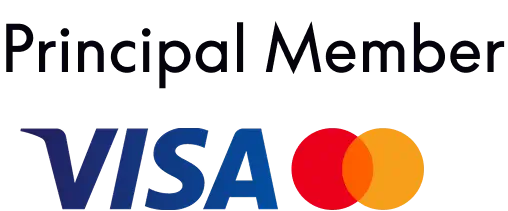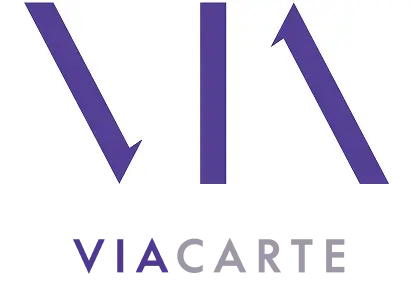Industries across LATAM and Caribbean banking hubs are moving away from outdated payment methods and embracing programmable card programmes that bring greater control, transparency, and fraud prevention. As digital economies mature, the demand for agile, compliant, and secure payment solutions continues to grow—driven by the region’s booming fintech sector and cross-border financial activity.
ViaCarte enables this transformation through Visa- and Mastercard-licensed, API-first infrastructure built for institutions seeking real-time oversight, regulatory alignment, and scalable expense management.
Key Takeaways
- LATAM and Caribbean industries are replacing legacy systems with programmable cards.
- Travel and hospitality use trip-specific cards to prevent fraud and simplify vendor reconciliation.
- Fleet, yacht, and airline operators manage fuel, maintenance, and crew expenses through programmable fleet cards.
- Wealth and family offices maintain compliance and oversight with entity-specific spending controls.
- Real estate and brokerage firms automate project payments and strengthen client fund transparency.
- Tech and SaaS companies streamline recurring vendor payments and improve departmental visibility.
- Banks, fintechs, and insurers issue instant, compliant payouts across claims and reimbursements.
Why Fraud Prevention Has Become Critical in LATAM and the Caribbean
As digital transactions surge globally, fraud prevention has become a defining challenge across Latin America and the Caribbean. Global digital payments are projected to surpass USD 14 trillion by 2027 (Statista), and LATAM is at the forefront of this transformation. Fintech adoption in Brazil, Colombia, and Chile continues to expand at double-digit annual rates, while Caribbean banking platforms are embracing API-first ecosystems to strengthen transparency and cross-border financial efficiency.
Fraud prevention now sits at the centre of this transformation. Traditional corporate cards—reliant on static credentials and manual replacement processes—can no longer meet the agility or protection demands of modern enterprises. Programmable card programmes address this gap by embedding fraud controls, spending rules, and compliance parameters directly into every transaction.
These solutions deliver:
- Instant issuance with merchant and category restrictions.
- Advanced AML/KYC spending controls that align with regional compliance frameworks.
- Multi-currency compatibility, supporting both regional and global operations.
- Seamless integration with digital wallets, ERP systems, and corporate expense platforms.
This convergence of security, agility, and compliance positions programmable cards as more than a convenience; they are becoming a competitive necessity for regulated industries operating in LATAM’s rapidly evolving digital economy.
Industry-Specific Use Cases & Value Propositions
1. Travel and Hospitality
- Pain Point: Fraud risk and complex B2B payments for airlines, hotels, and car rentals create reconciliation challenges across multiple vendors and currencies.
- Value Proposition: Trip-specific programmable cards enable secure, one-time-use transactions with configurable merchant and budget limits.
- Improvement: Businesses across Panama, Colombia, and the Caribbean streamline supplier payments, reduce exposure to unauthorized charges, and gain transparent reconciliation of travel expenses.
2. Gas Cards, Yachts & Airlines
- Pain Point: Entities managing fleets—aviation, maritime, or corporate vehicles—face recurring fuel, maintenance, and crew expense challenges, especially across borders.
- Value Proposition: Programmable fleet cards centralise payments for fuel, docking, ground handling, and crew allowances with location and category restrictions.
- Improvement: Operators strengthen cost governance, streamline refuelling and port transactions, and reduce administrative overhead through real-time oversight.
3. Wealth, Asset & Family Office Management
- Pain Point: Wealth, Asset and Family offices managers operate across jurisdictions, juggling reimbursements, entity-level cost control, and maintaining audit readiness.
- Value Proposition: Programmable card programs enable defined spending by entity, family member, or investment vehicle. Transactions can be tagged for purpose and restricted by merchant type.
- Improvement: Institutions gain discreet oversight, faster reconciliation, and consolidated visibility across currencies all while maintaining full AML/KYC compliance and privacy for their clients.
4. Real Estate & Brokerage Deals
- Pain Point: Large-scale real estate projects and brokerage operations face recurring vendor payments, fragmented budgets, and high fraud potential in manual disbursements and escrow management.
- Value Proposition: Project-specific programmable cards or accounts can restrict transactions by category, vendor, and amount—creating automated spending controls that align with client-account and compliance obligations.
- Improvement: Programmable payment solutions are transforming how property and brokerage firms manage client and project funds. From Panama’s infrastructure projects to Caribbean real estate hubs, firms gain tighter budget control, simplified vendor management, and reduced exposure to unauthorized spending. These digital controls enable real-time reconciliation, strengthen compliance oversight, and bring greater confidence to how funds are allocated and tracked across regions.
5. Technology and SaaS
- Pain Point: Tech and SaaS companies require automated, recurring payments for global subscriptions while maintaining departmental spend visibility.
- Value Proposition: Programmable card programmes automate recurring payments while tagging transactions to departments or cost centres.
- Improvement: Fast-growing LATAM SaaS firms achieve improved financial governance, eliminate card-sharing risks, and enhance operational efficiency across engineering, marketing, and IT.
6. Finance, Banking, and Insurance
- Pain Point: Traditional payout methods like cheques and wires are slow, costly, and prone to fraud in LATAM and Caribbean financial ecosystems.
- Value Proposition: Institutions use programmable cards for instant, AML-compliant disbursements across claims, settlements, or expense reimbursements.
- Improvement: Banks, fintechs, and insurers enhance customer experience through instant payouts, simplified reconciliation, and improved compliance with cross-border reporting standards.
Broader Benefits of Programmable Fraud Prevention
As digital economies in LATAM and the Caribbean evolve, organisations are redefining how they prevent financial fraud while streamlining operations.
Unlike static, physical corporate cards, programmable cards are designed with embedded logic that enables businesses to enforce spending rules, identity checks, and compliance standards at the transaction level. The result: enhanced oversight, reduced risk, and a new layer of agility across industries operating in regulated and high-volume environments.
Enhanced Security
Dynamic tokenization, unique card numbers, and single-use credentials make programmable cards significantly more secure than traditional payment methods. This eliminates exposure to stolen card data, vendor misuse, and unauthorized recurring transactions critical in markets where digital fraud losses continue to rise year over year.
Regulatory Alignment
Built-in AML/KYC automation supports cross-border reporting standards and aligns with evolving digital-finance frameworks across LATAM and the Caribbean.
Real-Time Oversight
Finance teams gain instant visibility into every transaction. Each card can be tied to a department, project, or vendor, enabling granular reporting and rapid reconciliation. Real-time data helps identify anomalies, streamline audits, and strengthen decision-making for CFOs and compliance officers managing regional operations.
Operational Efficiency
Programmable issuance eliminates physical-card logistics and manual workflows — businesses can create, fund, or suspend cards within seconds.
Cross-Border Payments and Compliance: The LATAM Advantage
Cross-border transactions across Panama, Brazil, Colombia, Chile, Uruguay, and Caribbean centres often involve high fees, delayed settlements, and fraud risks. Programmable payment systems solve this by combining multi-currency support, transaction-level compliance checks, and automated controls.
Each transaction leaves a transparent audit trail—helping institutions comply with AML and KYC standards while strengthening relationships with regulators and partners.
Card Programs & Programmable Payments: Use Cases Expanding Across LATAM and Caribbean Markets
As LATAM and Caribbean economies digitise, programmable payment infrastructures are reshaping how businesses manage cash flow, vendor relationships, and compliance obligations. From fintech startups to major banks, these programmes are becoming the foundation of regional financial innovation—enabling faster, safer, and more accountable transactions at scale.
ViaCarte’s API-First Advantage
What sets ViaCarte apart is its API-first design, built for enterprises and banks that require seamless integration into their existing ERP, treasury, or banking systems. Through Visa and Mastercard network licensing, ViaCarte ensures global acceptance while focusing specifically on LATAM and Caribbean compliance frameworks.
Key differentiators:
- Customisable workflows for AML/KYC compliance.
- Scalable issuance for enterprises expanding across borders.
- Real-time dashboards for finance teams in multiple regions.
- Bilingual onboarding and support for Spanish markets.
- This makes ViaCarte the partner of choice for banks, fintechs, and corporates preparing for the next phase of digital payments.
Card Programs: Strengthening the Business Case for Adoption
As organisations across Latin America and the Caribbean embrace digital transformation, programmable cards are emerging as more than just a payment innovation; they represent a strategic investment in resilience and scalability. Beyond gains in efficiency, fraud prevention, and regulatory compliance, these card solutions are redefining how enterprises manage financial ecosystems in an increasingly cashless regional economy.
Adopting these card programs enables organisations to:
- Reduce operational costs associated with producing physical cards, manual reconciliations, and paper-based billing cycles.
- Strengthen vendor and supplier relationships through faster, more reliable, and transparent payments.
- Advance ESG and sustainability goals by transitioning to digital-first financial systems that minimise plastic and paper waste.
- Enhance fraud resilience in regions facing elevated risks of cybercrime and financial misconduct.
Conclusion:
ViaCarte combines Visa/Mastercard licensing, API-first infrastructure, and deep LATAM-Caribbean expertise to deliver scalable solutions tailored for banks, fintechs, and enterprises. Contact ViaCarte today to design and launch your card programme built for compliance, scalability, and competitive advantage in LATAM and the Caribbean.
FAQs
1. What is a corporate card program?
A corporate card program is a digital-first payment framework that enables businesses to issue, manage, and control secure payment credentials for vendors, employees, or projects. These programs allow for instant issuance, transaction monitoring, and expense allocation all within a single, programmable platform.
2. How do card programs support compliance in LATAM and the Caribbean?
Modern card programs include built-in AML and KYC protocols, ensuring adherence to local and cross-border financial regulations. They provide real-time visibility, automated transaction categorisation, and complete audit trails, helping organisations maintain transparency and meet regulatory reporting requirements.
3. Can corporate card programs facilitate cross-border payments?
Yes. Advanced card programs support multi-currency capabilities, enabling seamless payments across regional and international markets. This feature is especially valuable for enterprises operating throughout LATAM and the Caribbean, where managing multiple currencies and jurisdictions is a daily necessity.
4. Which industries benefit most from corporate card programs?
Financial institutions, fintechs, e-commerce platforms, healthcare providers, consulting firms, and travel operators are among the top adopters. These sectors leverage programmable card programs to gain enhanced control, improved efficiency, and strengthened fraud prevention across high-volume transactions.
5. How do card programs differ from prepaid solutions?
Unlike static prepaid cards, corporate card programs offer API-driven control, dynamic spend limits, instant issuance, and compliance-ready reporting. They provide deeper integration with ERP, payroll, and expense systems, making them a strategic financial tool rather than a temporary payment solution.
6. Why choose ViaCarte?
ViaCarte is a Visa and Mastercard licensed issuer specialising in scalable, API-first card programs tailored for LATAM and Caribbean markets. Its platform delivers secure, compliant, and programmable solutions designed to support regulated industries and cross-border enterprises seeking modern, fraud-resistant financial infrastructure.



